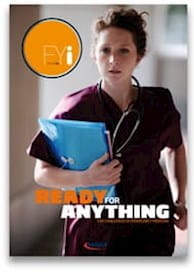The BMJ published an online supplement in 2007 looking back on medical milestones since the journal was first published in 1840. Among the chosen 15, which included the development of anaesthesia and the discovery of DNA structure, was the emergence of evidence-based medicine (EBM) – defined as the process of systematically reviewing, appraising and using clinical research findings to determine optimal clinical care for patients.
The term was coined in 1991 by research clinicians at McMaster University, Ontario, and in just a few decades EBM has become a core element in the practice of medicine and perhaps no more so than in the NHS. Bodies such as the National Institute for Health and Clinical Excellence (NICE) and the Scottish Intercollegiate Guidelines Network (SIGN) use EBM principles coupled with health economic analysis to determine which treatments should be available to NHS patients. Other professional bodies – colleges and associations – also utilise EBM assessments to develop specialist guidelines ensuring consistency in the treatment of specific conditions.
Assuming clinical guidelines developed on EBM principles are the best that medicine can offer patients, can they be considered legally binding for doctors in order to avoid charges of medical negligence?
The short answer is ‘no’. Medical negligence hinges on the question of whether a doctor has breached the ‘duty of care’ to a patient by failing to provide the required standard of treatment. In common law this standard is measured against responsible medical practice or what a ‘professional man of ordinary skill’ would have undertaken if acting with ‘ordinary’ care. This standard is not judged directly against any particular guideline.
Courts rely on expert medical evidence in determining if a doctor has breached duty of care. Experts review the medical records taking into consideration a number of factors including the experience of the doctor involved and the state of medical knowledge at the time of the alleged negligence (see p. 6 of this issue). A key feature of this opinion will usually be recognised clinical guidelines for specific treatments, including those of NICE or SIGN or one of the professional associations.
Departing from guidelines
So is it ever wise to depart from NICE or SIGN guidelines in the treatment of a patient?
“Health professionals must always be mindful of the relevant guidelines in their field of practice,” says MDDUS medico-legal adviser, Dr Gail Gilmartin. “Any clinical decisions to depart from the guidelines must be clearly justified. This requires full discussion with the patient and in some cases appropriate specialist advice, with detailed and full notes. Departing from guidelines may not be negligent but defending such action will rest on the quality of the consultations and records, and will be dependent on a responsible independent expert’s support of the chosen course of action.”
In one MDDUS case a 56-year-old man attended his GP with significantly raised blood pressure (systolic greater than 200mmHg and diastolic greater than 120mmHg). At a later review the patient was put on hypotensive treatment but stopped taking his medication because of the side-effects. The GP decided it best to review the situation again after attempts at reducing weight and alcohol consumption. The patient was then lost to follow-up and did not re-attend the GP.
Some months later the patient suffered a stroke leaving him with significant neurological loss. Lawyers acting on behalf of the patient launched a claim of medical negligence on the basis that the management of his hypertension had not been in keeping with current guidance available from professional organisations such as the British Hypertension Society.
The GP was of the view that these guidelines were unduly aggressive and he was anxious that he did not over-treat otherwise healthy patients. Medical experts instructed in the case found no logical basis for the GP’s departure from the guidelines and it was decided that the case was not defensible on the grounds of liability.
Foundation year doctors working for the NHS must fulfil their duty of care to patients. In doing so they are expected to be aware of guidelines established by NICE and SIGN as well as local protocols and care pathways in their employing hospitals or health authorities. MDDUS recommends that any decision to deviate from guidelines should not be undertaken lightly and should certainly be discussed and approved by a senior clinician.
Better safe than sorry – both for the sake of your patients and your future career.
Jim Killgore is editor of MDDUS Summons
This page was correct at the time of publication. Any guidance is intended as general guidance for members only. If you are a member and need specific advice relating to your own circumstances, please contact one of our advisers.
Read more from this issue of FYi

Save this article
Save this article to a list of favourite articles which members can access in their account.
Save to library
